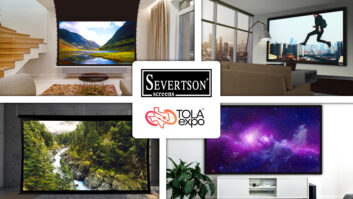The Consumer Electronics Association blasted Hollywood and members of the cable industry for the failure in bringing nationally standardized cable equipment to retail.
The CEA issued its position in a filing to the Federal Communications Commission (FCC) on a mandate in the 1996 Telecommunications Act, which called for retail availability of digital cable television equipment. To comply, the cable industry has authorized CableLabs to develop specifications for a digital cable standard known as OpenCable. While OpenCable specifications have been developed, the issue remains stalled due to what CEA members see as a troubling licensing requirement, called PHILA, (POD-Host Interface Licensing Agreement).
CE manufacturers say the PHILA agreement, which has been urged by Hollywood and cable companies, violate the FCC’s navigation devices rules and “contains onerous and draconian copy protection provisions, which if implemented, would lead to irate consumers and a stalled digital television transition,” according to the CEA statement.
“For competitive manufacturers, the CableLabs certification process would lead to an increase in bottom-line costs and significant delays in time-to-market for new products. But millions of current and potential DTV consumers stand to lose the most from being locked out of a competitive market for cable DTV products,” said Michael Petricone, CEA Technology Policy VP.
CEA proposed the FCC insist on a more productive and transparent approach to PHILA, which would include a public, inter-industry, Web-based reflector or advisory committee. CEA also proposed the determination that certain elements of the publicly available PHILA violate FCC regulations; and the imposition of sanctions on multiple service operators (MSO’s) combined with the issuance of regulations enforcing the right to attach if a PHILA agreement is not concluded by a date certain.
CableLabs and the National Cable and Telecommunications Association (NCTA) told the FCC it was hypocritical for “CE manufacturers and retailers to decry the requirement for such tools in PHILA when they and their constituent members build and sell direct-broadcast satellite equipment that includes the very same requirements.”
Meanwhile, CEA also blasted the Motion Picture Association of America (MPAA) and NCTA for recent statements to the FCC supporting selectable output controls on cable equipment. Such capability would, for example, allow HDTV programming to be down-converted to some lower resolution format when delivered over unprotected outputs, and block recording of certain programming.
The CEA called such activity “unconscionable remote control of America’s living rooms which Hollywood studio executives rebuked earlier this year during congressional hearings on digital copy protection.”
“Which position are we to believe; the one expressed before Congress or this latest stance taken with a federal agency? Hollywood’s mixed messages underscore the need for a more productive and transparent approach to a competitive digital cable equipment market,” said Petricone













